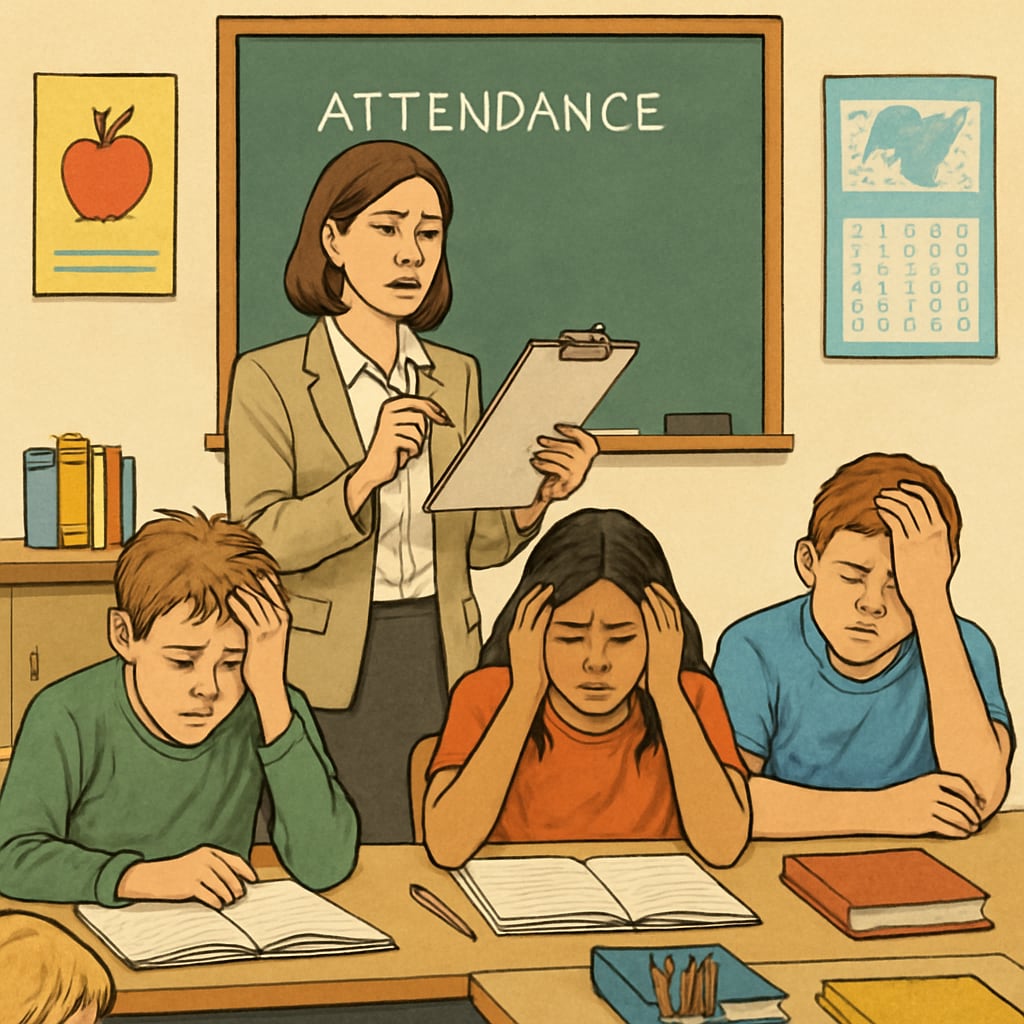In the realm of K-12 education, strict attendance policies have become a significant source of contention. While ensuring regular attendance is essential for learning, overly rigid rules often lead to unintended consequences. From punitive measures for truancy (commonly referred to as “旷课” in Chinese) to the involvement of legal authorities, these policies sometimes stray far from the true purpose of education. This article delves into the downsides of strict attendance systems, examines their legal implications, and advocates for a more compassionate, student-centered approach.
Unpacking the Rationale Behind Strict Attendance Policies
Attendance policies aim to promote discipline and ensure that students receive consistent instruction. However, the implementation of these policies often focuses on punishment rather than support. For example, students who miss a certain number of days may face detention, suspension, or even court summons. Such measures disproportionately affect students dealing with personal challenges, such as illness, family issues, or mental health struggles.
Research suggests that punitive attendance systems can alienate students rather than encourage engagement. According to a Britannica article on education, effective teaching prioritizes understanding students’ needs and circumstances. Strict policies, however, often overlook these nuances and apply a one-size-fits-all approach.

The Legal Implications of Attendance Enforcement
In some regions, attendance policies are intertwined with legal systems. Parents and students may face fines or legal action for repeated truancy. While these laws aim to address chronic absenteeism, they often exacerbate the challenges faced by vulnerable families. Instead of addressing root causes like poverty or lack of access to resources, legal interventions tend to criminalize the symptoms.
For example, a 2020 study by the Wikipedia entry on compulsory education highlights how such legal measures disproportionately impact low-income families. The fear of legal repercussions can create a hostile environment, where the focus shifts from learning to compliance.

Moving Towards a Student-Centered Approach
To truly foster student growth, attendance systems must evolve. Here are a few key strategies for creating a more effective and humane policy:
- Focus on Support: Instead of punishing absenteeism, schools should identify the underlying reasons and provide tailored support, such as counseling or flexible schedules.
- Engage Families: Collaboration with families can help address attendance issues proactively. Regular communication and resource-sharing are essential.
- Revise Legal Interventions: Legal measures should be a last resort. Schools and policymakers need to prioritize educational solutions over punitive ones.
By adopting these practices, schools can create a nurturing environment where students feel valued and supported, ultimately improving attendance rates and academic outcomes.
In conclusion, while attendance policies are vital for educational success, their strict enforcement can sometimes hinder the very purpose they aim to serve. It is time to rethink these systems, ensuring they align with the principles of empathy, equity, and student well-being.
Readability guidance: This article uses concise paragraphs and clear transitions to maintain readability. Lists are used to summarize key points, and long sentences are minimized. The content balances informative analysis with actionable recommendations, promoting engagement and comprehension.


